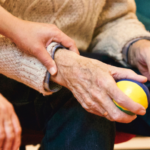Since the outbreak of Covid-19 and UK lockdown, many in the UK are now left worrying about their jobs, homes and finances. The government has faced a sudden and urgent pressure to support thousands of people as they find themselves without work and income – and suddenly, people who never expected to are living on benefits.
With so many more people having to depend on government grants, benefits, and special payment arrangements, I couldn’t help but think how the idea of ‘living off the state’ has taken a dramatic new angle.
Fascinatingly, the otherwise relatively ‘hands-off’ Conservative Party have been forced to spring into action, providing huge sums of money to try and support businesses and individuals who risk losing everything as they have to adapt or close due to the pandemic. Politicians (including the Prime Minister) who have consistently voted for cuts to benefits, implemented austerity measures that put huge strain on the NHS, as well as under-funding health and social care, education, and social housing, are taking actions we never would have expected.
As a benefits advice worker, I have seen countless working-class and extremely poor individuals struggling to get by on Universal Credit. Before the pandemic, for over-25s the standard rate was £317.82 a month, while under-25s got just £251.77. It is no surprise to see food bank numbers on the increase and street homelessness up by 141% over the last 10 years. Now, with the outbreak of coronavirus forcing almost 10 times as many people to apply for Universal Credit, Rishi Sunak has announced that Universal Credit will rise by £1000 a year. Meanwhile, Statutory sick pay has gone up (as of 6th April) from £94.25 to £95.85 a week.
Obviously in times of crisis the government has to take unprecedented measures to keep the economy afloat. However it is particularly hard-hitting looking at Boris Johnson’s voting record, showing he has voted to reduce spending on welfare benefits 19 times – that’s every single time he has voted on benefits spending. He has literally always voted for benefits cuts.
Why should this bother me? It’s increasing and that is wonderful news, right?
It is indeed wonderful news that those claiming benefits will have more to help them in times of poverty and need. I am bothered by the conditions it took for this spending to take place. Because it wasn’t until people that our government could relate to, those they knew and, crucially, respected were having to rely on state intervention to survive, that they decided to increase the amount available. It wasn’t until the economy on a larger scale was at risk that action was taken to alleviate financial hardship.
In British society, as far as I have seen, there is a common idea of what ‘kinds of people’ are on benefits. So many clients of mine are embarrassed that they have to ‘live off the state’; they know the stigma and they are aware that others will think they are lazy or even immoral. Because usually the poorest people are on benefits, many middle class people and professionals do lead very different lives to those claiming benefits. They think of them as other, often as less intelligent or not hard-working enough. Right wing politicians often push the idea that if only you try hard enough, you can overcome hardship and become financially comfortable. One look at the benefits system shows that their philosophy is based on the theory that if you make life on benefits as difficult as possible, and if you tell those with severe disabilities and illnesses they must work, then they will be forced to do so.
The thing is, the welfare state was always meant to be a safety net. It is supposed to support those in need, who struggle to find work or maintain work due to health issues beyond their control. Yet still, the stereotype of benefits claimants is lazy, less intelligent, rough, or even violent.
Covid-19, however, has imposed just a couple of the adversities so often faced by those in this country who live below the poverty line onto ‘the rest of us.’ That is, onto those who have been lucky enough to find themselves in work over recent years, or with good enough health to sustain employment.
With Covid-19, the safety net that helps those in times of sickness, or lack of job opportunities, is suddenly needed by a massive percentage of the population.
It was this extension of job-instability and financial anxiety to ‘the rest of society’ that partly prompted the Conservative government to finally raise benefits to something resembling an amount you can survive on.
It’s not just benefits; the government has offered to pay 80% of the wages of those being ‘furloughed’, those made temporarily redundant due to lack of available work. Again, this is really great and necessary to keep people going and the economy functioning – but I can’t help recalling other times in history when people lost their jobs due to workplace closures beyond their control and were given no support by the government. Think of Thatcher and the mine closures in Wales and the North of England; work became nonviable, and to this day entire towns built around collieries are still suffering the consequences of the government failing to provide alternative opportunities. There are countless other examples of industry and factory closures that have taken people’s livelihoods and have followed the same path.
Where was this compassionate safety net then?
It takes the middle classes to be hit, even for Johnson himself to be infected with Covid-19, for the welfare state to kick into action properly.
Where has this compassion been for the last 10 years?
As people have starved to death from benefits cuts, relied more and more on food banks, and struggled to feed their children, austerity-enforcing politicians turned a blind eye and allowed the NHS, homelessness support services, addiction services, social services, and endless other amazing facilities to be starved of resources. I can’t help but think this is related to the class backgrounds of the majority of those who run our country. They have been irresponsibly detached from the realities of daily life for those who usually experience intense poverty. It took a pandemic and the extension of some of these difficulties to ‘everyone else’ for the welfare state to be taken seriously and supported properly.
If one good thing comes from this crisis, I want it to be an increased understanding of the instability, anxiety, and distress experienced by benefits claimants on a regular basis. As more and more people have no choice but to rely on the state, I hope they realise how lucky we are to have the welfare state, and how difficult it can be psychologically and financially to be forced to live off it. I hope this will lead to a revitalised approach to the welfare state and its importance as we finally recognise that we would be nowhere without it.




